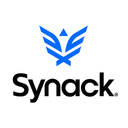DevSecOps—which stands for Development, Security, and IT Operations—builds on the principles of DevOps by incorporating security practices throughout the entire software development lifecycle. DevOps focuses on enabling rapid and agile software development through automation and streamlined collaboration between development and operations teams. It breaks down silos and uses tools to make workflows more efficient and development cycles faster. DevSecOps takes this approach a step further by integrating security as a foundational element of the development process, rather than treating it as an afterthought. In continuous delivery environments, where frequent updates and iterations occur, cybersecurity professionals face challenges in maintaining security standards. Developers often integrate third-party open-source components and APIs, which may have independent security statuses. This can create numerous potential vulnerabilities that are difficult to track and manage. Even minor code changes can inadvertently introduce bugs or security gaps, providing opportunities for bad actors to exploit weaknesses. In this context, security teams are often forced to react to issues created by development processes, despite their best efforts to prevent them. DevSecOps software aims to proactively embed security into the development pipeline, ensuring that secure code is produced from the outset. By adopting this approach, organizations can minimize the risks associated with unforeseen vulnerabilities and ensure that security is not just a checkpoint but a continuous practice. To fully realize the benefits of DevSecOps, teams need the right tools integrated into their existing development workflows. These tools enhance security without compromising efficiency. For example, Software Composition Analysis (SCA) tools automatically track the security status of open-source components used by development teams. With potentially hundreds of components in play, SCA tools continuously scan for security vulnerabilities and version updates. This helps ensure components remain secure and up to date without requiring manual intervention, reducing the security workload for development teams. By integrating these tools into their DevOps pipelines, teams can confidently build software with security built in. Cybersecurity professionals can then focus on strategic security measures, knowing that their workflows are actively secure. This proactive security approach allows DevSecOps teams to operate with greater efficiency and less risk, ultimately fostering a more secure software environment.

GitHub
Το GitHub φιλοξενεί αποθετήρια με έλεγχο έκδοσης Git, παρέχει εργαλεία συνεργασίας (issues, pull requests, wikis), έλεγχο πρόσβασης και αυτοματοποίηση CI/CD.

GitLab
Το GitLab είναι ένα web εργαλείο για διαχείριση αποθετηρίων Git, παρακολούθηση θεμάτων, wiki και αυτοματοποιημένη CI/CD για κατασκευή, δοκιμή και ανάπτυξη λογισμικού.

Verizon
Η εφαρμογή Verizon επιτρέπει τη διαχείριση λογαριασμών και υπηρεσιών: πληρωμές, αλλαγή πακέτων, παρακολούθηση δεδομένων, αγορά συσκευών και υποστήριξη.

Datadog
Παρακολουθεί και αναλύει υποδομές, εφαρμογές και αρχεία καταγραφής σε πραγματικό χρόνο, προσφέροντας λειτουργίες ασφάλειας, ειδοποιήσεων και διαχείρισης περιστατικών.

Wiz
Το Wiz είναι πλατφόρμα ασφάλειας cloud που παρέχει ορατότητα, εντοπισμό και προτεραιοποίηση κινδύνων, διαχείριση ευπαθειών και εργαλεία αυτοματισμού για αποκατάσταση.

Alibaba Cloud
Εφαρμογή cloud που παρέχει υπολογιστική ισχύ, αποθήκευση, βάσεις δεδομένων, εργαλεία AI και υπηρεσίες ασφάλειας για επιχειρήσεις, προγραμματιστές και δημόσιους φορείς.

New Relic
Παρακολουθεί, εντοπίζει και επιλύει προβλήματα απόδοσης εφαρμογών, υποδομής και υπηρεσιών μέσω δεδομένων, ειδοποιήσεων και καταγραφών.

HackerOne
Το HackerOne συνδέει εταιρείες με ερευνητές κυβερνοασφάλειας για εντοπισμό, αναφορά και διαχείριση ευπαθειών και την καταβολή ανταμοιβών.

Pentera
Η Pentera είναι πλατφόρμα αυτοματοποιημένης επικύρωσης ασφάλειας που δοκιμάζει όλα τα στρώματα κυβερνοασφάλειας, εντοπίζει τρωτά σημεία και κατευθύνει την αποκατάσταση.

Phidata
Πλατφόρμα ανοιχτού κώδικα για δημιουργία, ανάπτυξη και παρακολούθηση αυτόνομων βοηθών AI που αυτοματοποιούν εργασίες, επεξεργάζονται δεδομένα και ενσωματώνουν εργαλεία/βάσεις γνώσης.

Fastly
Το Fastly παρέχει πλατφόρμα edge cloud με CDN, βελτιστοποίηση εικόνας/βίντεο, WAF, προστασία DDoS και αντιμετώπιση bots.

Elastic Cloud
Το Elastic Cloud παρέχει αναζήτηση, παρατηρησιμότητα και ασφάλεια στο cloud για εύρεση πληροφοριών, ανάλυση δεδομένων και προστασία συστημάτων.

Better Stack
Η Better Stack εμφανίζει ολόκληρη τη στοίβα, συγκεντρώνει και ψάχνει δομημένα logs με SQL, παρακολουθεί υπηρεσίες, και διαχειρίζεται ειδοποιήσεις και περιστατικά.

Defendify
Το Defendify παρέχει ενιαία πλατφόρμα κυβερνοασφάλειας για αξιολογήσεις, ανίχνευση και απόκριση, εκπαίδευση, πολιτικές και έλεγχο τρωτών σημείων.

Cymulate
Το Cymulate είναι πλατφόρμα ελέγχου ασφάλειας που προσομοιώνει επιθέσεις και δοκιμάζει άμυνες δικτύου, cloud και endpoints για αξιολόγηση και βελτίωση της ασφάλειας.

Pentest Tools
Πλατφόρμα cloud για δοκιμές διείσδυσης σε εφαρμογές ιστού και δίκτυα: σαρώσεις ευπαθειών, αυτοματοποιημένα και χειροκίνητα τεστ, αναφορές και εργαλεία ενσωμάτωσης.

Veracode
Το Veracode εντοπίζει, αξιολογεί και βοηθά στην επιδιόρθωση ευπαθειών σε εφαρμογές και εξαρτήματα καθ' όλο τον κύκλο ανάπτυξης, με αυτοματοποιημένες σαρώσεις και αναφορές.

Scribe Security
Το Scribe είναι μια SaaS εφαρμογή που παρέχει συνεχή έλεγχο ασφάλειας και αξιοπιστίας λογισμικού, διαχειρίζεται κεντρικά SBOM και κοινοποιεί πληροφορίες ασφάλειας μεταξύ παραγωγών και καταναλωτών.

Qualys
Η εφαρμογή Qualys VMDR παρέχει διαχείριση ευπαθειών με ποσοτικοποίηση κινδύνου, ανίχνευση περιουσιακών στοιχείων, αυτοματοποιημένη αποκατάσταση και συνεργασία μεταξύ ομάδων ασφάλειας και IT.

Codacy
Η Codacy ανιχνεύει αποθετήρια Git και αλλαγές κώδικα, πραγματοποιεί στατική ανάλυση για ποιότητα, κάλυψη δοκιμών και ασφάλεια και υποστηρίζει πολλές γλώσσες.

Intigriti
Το Intigriti συνδέει οργανισμούς με κοινότητα ερευνητών για εντοπισμό και αναφορά ευπαθειών, καθώς και διαχείριση επιδιορθώσεων.

Coralogix
Το Coralogix είναι πλατφόρμα παρατήρησης που συλλέγει, αναλύει και αρχειοθετεί logs, μετρικές, traces και δεδομένα ασφάλειας, παρέχοντας αναζητήσεις, ειδοποιήσεις και άμεση πρόσβαση στα δεδομένα.

Validato
Πλατφόρμα συνεχούς επαλήθευσης ασφάλειας που εκτελεί ασφαλείς προσομοιώσεις παραβιάσεων και επιθέσεων σε παραγωγή για να δοκιμάσει και επικυρώσει διαμορφώσεις ελέγχων ασφαλείας.

Codecov
Παρακολουθεί και αναφέρει την κάλυψη κώδικα, εντοπίζει ανελεγμένα σημεία, ενσωματώνεται με εργαλεία δοκιμών και CI/CD για αυτοματοποιημένη ανάλυση και αναφορές.

Akamai
Ο Akamai παρέχει CDN, λύσεις ασφάλειας (DDoS, WAF, διαχείριση bot) και edge computing για γρήγορη παράδοση περιεχομένου, προστασία εφαρμογών και κλιμάκωση υπηρεσιών.

CrowdSec
Το CrowdSec ανιχνεύει επιθετικές συμπεριφορές στο δίκτυο, αποκλείει αυτόματα κακόβουλες διευθύνσεις IP και μοιράζει επαληθευμένες απειλές στην κοινότητα για συλλογική προστασία.

Snyk
Ο Snyk είναι πλατφόρμα ασφάλειας για προγραμματιστές που ανιχνεύει και διορθώνει ευπάθειες σε κώδικα, εξαρτήσεις, εικόνες κοντέινερ και υποδομές (IaC).

GitGuardian
Εφαρμογή ανίχνευσης μυστικών σε αποθετήρια και CI/CD: εντοπίζει κλειδιά/κωδικούς, παρέχει ειδοποιήσεις και οδηγίες αποκατάστασης.

ReconwithMe
Το ReconWithMe είναι εργαλείο συμμόρφωσης ISO 27001 που αυτοματοποιεί σάρωση ευπαθειών σε servers και APIs (XSS, SQLi, ελλιπείς headers, clickjacking, λανθασμένες API ρυθμίσεις, CVE).

YesWeHack
Το YesWeHack είναι πλατφόρμα Bug Bounty και VDP που συνδέει οργανισμούς με ηθικούς χάκερ για εντοπισμό, αναφορά και διαχείριση ευπαθειών σε ιστότοπους, εφαρμογές και υποδομές.

Securily Pentest
Το Securily Pentest εκτελεί αυτοματοποιημένες και χειροκίνητες δοκιμές διείσδυσης, εντοπίζει ευπάθειες και παράγει αναφορές επιδιόρθωσης.

SonarCloud
Το SonarCloud παρέχει ανάλυση ποιότητας και ασφάλειας κώδικα στο cloud, ενσωματώνεται με GitHub/Bitbucket/Azure DevOps και αναφέρει σφάλματα, ευπάθειες και τεχνικό χρέος.

Synack
Το Synack προσφέρει δοκιμές διείσδυσης ως υπηρεσία (PTaaS), συνδυάζοντας ανθρώπινες δοκιμές και αυτόματους σαρωτές για συνεχή εντοπισμό, ταξινόμηση τρωτών σημείων και αναφορές για τη διοίκηση.

Splunk
Το Splunk είναι πλατφόρμα για αναζήτηση, παρακολούθηση, ευρετηρίαση και ανάλυση μηχανικών δεδομένων σε πραγματικό χρόνο, δημιουργώντας γραφήματα, αναφορές, ειδοποιήσεις και πίνακες ελέγχου.

SolarWinds
Το Help Desk Essentials Pack συνδυάζει Web Help Desk και Dameware για διαχείριση αιτημάτων, IT περιουσιακά στοιχείων, απομακρυσμένη υποστήριξη και αναφορές.

Astra
Το Astra Pentest προσφέρει αυτοματοποιημένο και χειροκίνητο penetration testing, εντοπίζει ευπάθειες, δίνει αξιολόγηση κινδύνου και οδηγίες διόρθωσης, με ενσωματώσεις σε CI/CD και εργαλεία συνεργασίας.

OpenText
Το OpenText παρέχει λογισμικό διαχείρισης επιχειρηματικών πληροφοριών που οργανώνει, αποθηκεύει και διαχειρίζεται μη δομημένα δεδομένα και περιεχόμενο για επιχειρήσεις και δημόσιους φορείς, συμπεριλαμβανομένης της συμμόρφωσης.

Malcare
Η MalCare προστατεύει ιστοσελίδες WordPress με αυτόματες σαρώσεις και αφαίρεση malware με ένα κλικ, τείχος προστασίας σε πραγματικό χρόνο, γεω-μπλοκ και εργαλεία διαχείρισης ιστότοπου.

Sucuri
Το Sucuri καθαρίζει και προστατεύει ιστοσελίδες: σαρώνει και αφαιρεί κακόβουλο λογισμικό, παρέχει cloud WAF, παρακολούθηση και μετριασμό DDoS.

Bugcrowd
Το Bugcrowd συνδέει οργανισμούς με εξωτερικούς ερευνητές ασφάλειας για εντοπισμό, αξιολόγηση και διαχείριση ευπαθειών μέσω ενιαίας πλατφόρμας.

Patchstack
Το Patchstack προστατεύει ιστότοπους από ευπάθειες σε plugins και θέματα, ανιχνεύει απειλές σε πραγματικό χρόνο και εφαρμόζει προσωρινά μπαλώματα πριν τις επίσημες ενημερώσεις.

BitNinja
Το BitNinja προστατεύει διακομιστές (Linux/Windows) από κακόβουλο λογισμικό, brute‑force, εκμεταλλεύσεις ευπαθειών, DoS και zero‑day, με WAF, σαρώσεις και αυτόματους αποκλεισμούς.

DeepSource
Αναλύει συνεχώς πηγαίο κώδικα σε κάθε commit/PR για να εντοπίζει και να διορθώνει θέματα ασφάλειας, απόδοσης, αντι-πρότυπα και πιθανούς κινδύνους σφαλμάτων.

Detectify
Το Detectify ανιχνεύει και παρακολουθεί εξωτερικά διαδικτυακά περιουσιακά στοιχεία, εντοπίζει τρωτά σημεία και παρέχει τεχνικές οδηγίες αποκατάστασης.

Dynatrace
Η εφαρμογή Dynatrace παρέχει παρατηρησιμότητα, ανίχνευση και διαχείριση ασφαλείας, αυτοματοποιεί λειτουργίες και υποστηρίζει συμμόρφωση για τη διαχείριση και παρακολούθηση συστημάτων IT.

Invicti
Το Invicti εντοπίζει, αξιολογεί και διαχειρίζεται ευπάθειες σε web εφαρμογές, API και βιβλιοθήκες μέσω αυτοματοποιημένων σαρώσεων DAST, IAST και SCA, με ενέργειες για DevSecOps.

StackPath
Το StackPath παρέχει υπηρεσίες edge computing, CDN και ασφάλειας (DDoS, εξισορρόπηση φορτίου) για βελτίωση ταχύτητας και διαθεσιμότητας.

Semgrep
Το Semgrep σαρώνει πηγαίο κώδικα (εσωτερικό/τρίτων) για ευπάθειες και μη συμμορφώσεις, αναφέρει ευρήματα με δυνατότητα ενσωμάτωσης σε CI/SCM και επιτρέπει δημιουργία προσαρμοσμένων κανόνων.

Harness
Η Harness αυτοματοποιεί αναπτύξεις λογισμικού, επαληθεύει και κάνει rollback αυτόματα με AI/ML, υποστηρίζει Canary/Blue‑Green και παρέχει έλεγχο ασφάλειας και διακυβέρνησης.

HostedScan
Το HostedScan παρέχει 24/7 ανίχνευση ευπαθειών με σαρώσεις ανοιχτού κώδικα, αυτόματες ειδοποιήσεις αλλαγών, εισαγωγή στόχων από παρόχους (π.χ. AWS) και dashboard αναφορών.

Oneleet
Το Oneleet παρέχει πλατφόρμα ασφάλειας και συμμόρφωσης για τη δημιουργία, διαχείριση και παρακολούθηση προγραμμάτων κυβερνοασφάλειας και ενοποίηση με υπηρεσίες cloud.

OnSecurity
Το OnSecurity παρέχει ενιαία πλατφόρμα δοκιμών διείσδυσης (pentesting), σάρωσης ευπαθειών και πληροφοριών απειλών για αξιολόγηση και μείωση κινδύνων.

Bright Security
Εφαρμογή DAST που παρέχει δοκιμές ασφάλειας για web εφαρμογές, API και εφαρμογές GenAI/LLM σε προγραμματιστές και ομάδες AppSec, ενσωματώνεται στο SDLC και μειώνει ψευδώς θετικές ειδοποιήσεις.

Sumo Logic
Πλατφόρμα SaaS για συλλογή, αποθήκευση και ανάλυση αρχείων καταγραφής και τηλεμετρίας σε πραγματικό χρόνο, με δυνατότητες αναζήτησης, οπτικοποίησης και ανίχνευσης ανωμαλιών.

ExtraHop
Το ExtraHop παρέχει έλεγχο και ανάλυση δικτύου: ανίχνευση και απόκριση απειλών, παρακολούθηση απόδοσης, επεξεργασία πακέτων και αποκρυπτογράφηση για έρευνα συμβάντων.

Cobalt
Το Cobalt είναι πλατφόρμα ενσωμάτωσης για SaaS που προσφέρει μία ενιαία API για σύνδεση 250+ εφαρμογών, επιτρέποντας λευκή ετικέτα και διαχείριση ενσωματώσεων.

Breachlock
Το BreachLock εντοπίζει και αξιολογεί συνεχώς την επιφάνεια επίθεσης, εκτελεί δοκιμές διείσδυσης και παρέχει τεκμηριωμένα ευρήματα για την αντιμετώπιση και μετριασμό κινδύνων.

Memfault
Το Memfault συλλέγει δεδομένα σφαλμάτων, καταγραφές και μετρήσεις από ενσωματωμένες συσκευές και διαχειρίζεται ασφαλείς OTA ενημερώσεις για Linux, Android και MCU.

Intruder
Το Intruder είναι πλατφόρμα διαχείρισης επιφανείας επιθέσεων που εντοπίζει, ανιχνεύει και βοηθά στην επιδιόρθωση ευπαθειών σε δίκτυα και εφαρμογές με συνεχή σαρώσεις και οδηγίες αποκατάστασης.

Mlytics
Το Mlytics διαχειρίζεται πολλαπλά CDN, βελτιώνει ταχύτητα και αξιοπιστία ιστοσελίδων παγκοσμίως, παρακολουθεί και δρομολογεί την κυκλοφορία προς τον καλύτερο πάροχο.
Λύσεις
© 2026 WebCatalog, Inc.